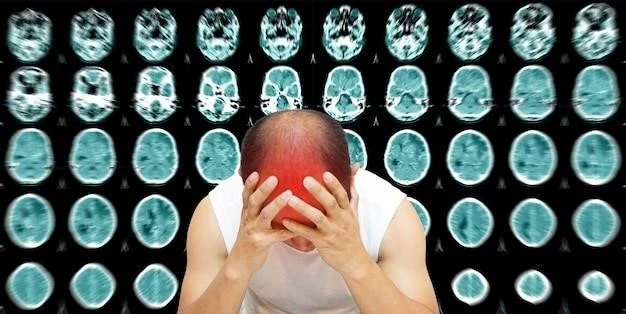Introduction to Motor Neuropathy
Multifocal motor neuropathy (MMN) is a disease that affects your body’s motor nerves, responsible for controlling your muscles. It is characterized by progressive muscle weakness and asymmetry in your limbs.
Definition and Overview
Multifocal motor neuropathy (MMN) is a rare condition that primarily affects the motor nerves, leading to progressive muscle weakness and atrophy. This disorder is characterized by its asymmetric nature, impacting various areas of the body unequally. MMN typically manifests with weakness in the hands, often with differences between the two sides of the body; It is distinct from other neuropathies due to its focus on motor nerve dysfunction without accompanying sensory problems. Despite its rarity, MMN can significantly impair muscle function and mobility over time.

Types of Motor Neuropathy
There are two main types of motor neuropathy to consider⁚ Multifocal Motor Neuropathy (MMN) and Pure Motor Neuropathy. Each type presents with unique characteristics and requires tailored treatment approaches.
Multifocal Motor Neuropathy (MMN)
Multifocal Motor Neuropathy (MMN) is characterized by progressive muscle weakness, particularly in the hands, with asymmetry between the two sides of the body. It primarily affects the motor nerves without sensory involvement, leading to challenges in muscle control and movement.
Pure Motor Neuropathy
Pure Motor Neuropathy is a condition that primarily affects the motor nerves, leading to muscle weakness, atrophy, and reduced deep tendon reflexes. This form of neuropathy presents with specific symptoms related to muscle function and movement without sensory involvement.
Causes of Motor Neuropathy
The causes of motor neuropathy can vary, with factors such as autoimmune influences and genetic predisposition playing significant roles in the development of this condition. Understanding these underlying causes is crucial for effective diagnosis and treatment strategies.
Autoimmune Factors
Autoimmune factors play a crucial role in the development of motor neuropathy, particularly in conditions like multifocal motor neuropathy (MMN). The immune system mistakenly attacks the body’s own motor nerves, leading to muscle weakness and dysfunction. Understanding these autoimmune mechanisms is essential for managing and treating motor neuropathy effectively.
Genetic Predisposition
Genetic predisposition plays a significant role in motor neuropathy, influencing the susceptibility of individuals to develop conditions such as multifocal motor neuropathy (MMN). Understanding the genetic factors contributing to motor nerve dysfunction is vital for diagnosing and managing hereditary forms of motor neuropathy.

Symptoms of Motor Neuropathy
Common symptoms of motor neuropathy include muscle weakness, numbness, and tingling sensations. These symptoms can affect various parts of the body and impact mobility and muscle coordination.
Muscle Weakness
Muscle weakness is a common symptom of motor neuropathy, often leading to challenges in movement and coordination. The weakness may be progressive and asymmetric, affecting various muscle groups in the body.
Numbness and Tingling Sensations
Individuals with motor neuropathy may experience numbness and tingling sensations, affecting the hands, feet, or other areas of the body. These sensations can range from mild discomfort to more severe disruptions in sensation and might accompany muscle weakness in affected individuals;
Diagnosis of Motor Neuropathy
The diagnosis of motor neuropathy involves a combination of clinical evaluation and specialized tests to identify underlying causes and assess the extent of nerve damage. Understanding the symptoms is crucial for an accurate diagnosis.
Clinical Evaluation
Diagnosing motor neuropathy involves a clinical evaluation where healthcare providers assess muscle weakness, changes in reflexes, and coordination difficulties. Physicians may also examine the medical history and family history to determine the possible causes of the condition.
Specialized Tests
Specialized tests play a key role in the diagnosis of motor neuropathy, enabling healthcare providers to assess nerve function and identify specific patterns of nerve damage. Electrodiagnostic tests and nerve conduction studies are commonly used to evaluate motor nerve health and functionality in individuals presenting with symptoms of neuropathy.
Treating motor neuropathy often involves a combination of medication therapy and physical therapy to manage symptoms and improve muscle function. Tailored treatment plans can help individuals with motor neuropathy regain strength and enhance their quality of life.
Treatment Options for Motor Neuropathy
Medication therapy plays a crucial role in managing motor neuropathy, aiming to alleviate symptoms and slow down disease progression. Various medications, such as immunoglobulins and immunosuppressants, may be prescribed to target the underlying autoimmune factors contributing to motor nerve dysfunction.
Physical Therapy
Physical therapy is a crucial component of motor neuropathy treatment, focusing on exercises and interventions to improve muscle strength, coordination, and mobility. Tailored physical therapy programs can help individuals with motor neuropathy enhance their motor function and overall quality of life.
Management of Motor Neuropathy
Effective management of motor neuropathy involves implementing lifestyle changes and providing supportive care to improve the quality of life for individuals with this condition. These approaches can help in alleviating symptoms and promoting overall well-being.
Lifestyle Changes
Implementing lifestyle changes is essential in managing motor neuropathy. Strategies such as maintaining a balanced diet, engaging in regular physical activity suited to individual capabilities, and practicing stress management techniques can contribute to overall well-being and symptom management for individuals with motor neuropathy.
Supportive Care
Supportive care is pivotal in the management of motor neuropathy, providing individuals with the necessary emotional and physical support to cope with the challenges posed by this condition. Different support systems and resources can enhance the overall well-being and quality of life for those affected by motor neuropathy.
Prognosis and Complications of Motor Neuropathy
Understanding the long-term outlook and potential risks associated with motor neuropathy is crucial for effective management and treatment. By assessing prognosis and complications, healthcare providers can offer tailored care to optimize patient outcomes and quality of life.
Long-Term Outlook
The long-term outlook for individuals with motor neuropathy depends on various factors, including the underlying cause, disease progression, and response to treatment. Early diagnosis and appropriate management can help improve outcomes and quality of life for those affected by motor neuropathy.
Potential Risks and Complications
Motor neuropathy poses potential risks and complications, including progressive muscle weakness, impaired coordination, and reduced mobility. Individuals with motor neuropathy may face challenges in activities of daily living and may be at higher risk for falls and injuries due to muscle weaknesses and sensory disturbances.
